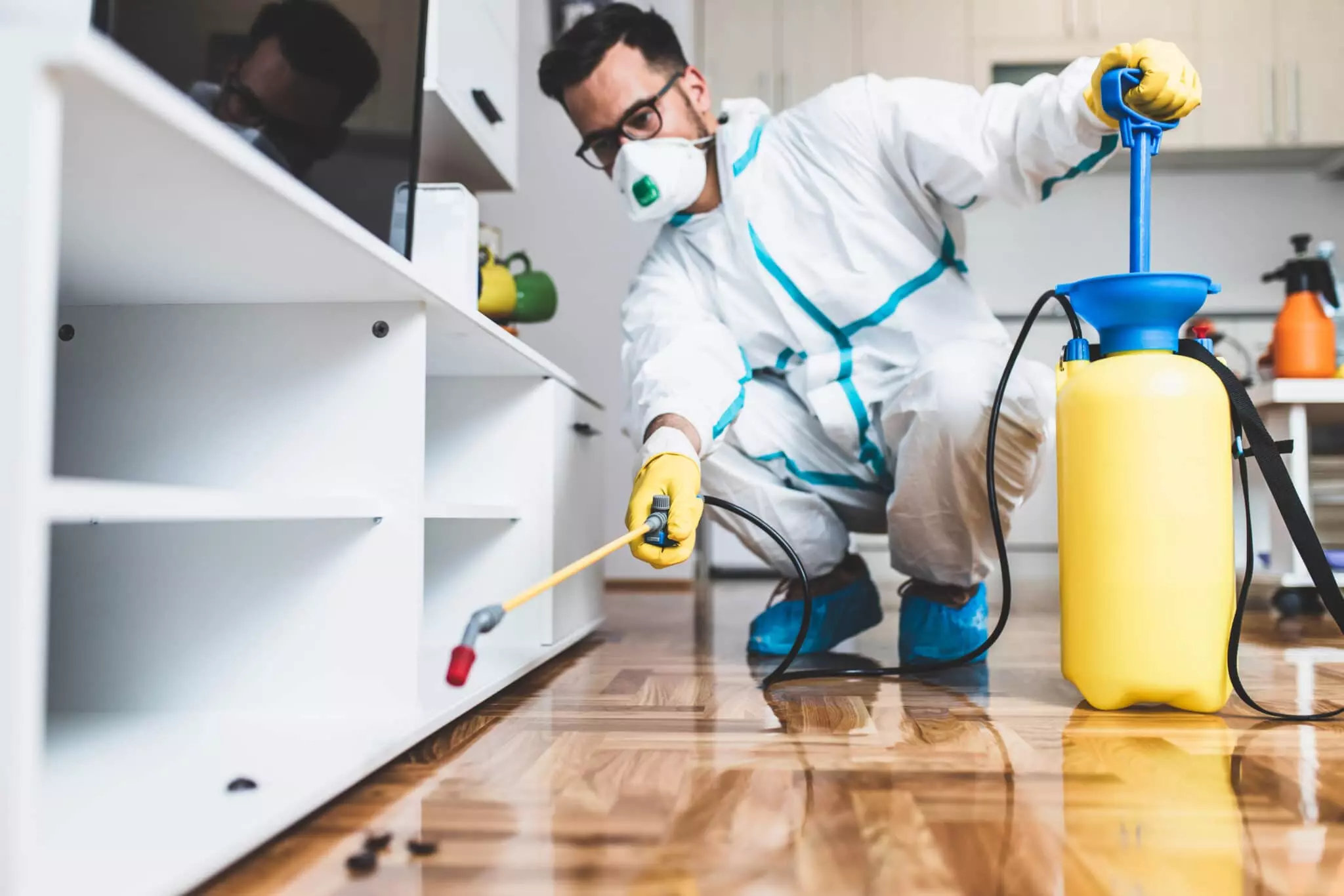Introducing the Numerous Sorts Of Bug Control Solutions to Address Different Infestations
In the realm of parasite control, a myriad of services exists to battle the diverse array of invasions that can plague homes, services, and farming settings. As we dive into the subtleties of these pest control options, a much deeper understanding of their efficiency and applicability arises, shedding light on the value of picking the ideal strategy for each distinct parasite difficulty.
Chemical Parasite Control Methods
Chemical insect control approaches involve making use of details chemicals to prevent or get rid of pest invasions in a targeted fashion. These approaches are commonly employed by insect control specialists to address a variety of bugs, consisting of insects, rats, and various other undesirable organisms. The chemicals utilized in these approaches are created to properly remove pests while minimizing harm to humans, family pets, and the atmosphere.

One more commonly utilized chemical insect control technique is rodenticides, which are particularly created to remove rodent populaces. These chemicals are commonly put in lure terminals or catches to bring in and eliminate rats, aiding to regulate problems and protect against damage to frameworks and food products. When utilizing chemical bug control approaches, it is important to follow safety guidelines and regulations to ensure accountable and reliable bug administration.

Biological Pest Control Solutions
Unlike using details chemicals for targeted pest elimination, biological insect control solutions harness all-natural killers, parasites, or microorganisms to manage parasite populations properly. This ecologically friendly technique offers a lasting and sustainable option to pest infestations without creating harm to beneficial bugs, pets, or the community.
Biological bug control methods include presenting natural opponents of the target parasite types right into the affected area. These all-natural adversaries, such as ladybugs, parasitic wasps, nematodes, and fungis, exploit or infect the insects, inevitably reducing their populations. By making use of the natural habits and communications of these microorganisms, biological control can efficiently reduce pest numbers and protect against further damages to gardens, frameworks, or plants.
One key advantage of biological parasite control is its ability to target particular bugs while decreasing injury to non-target organisms. Additionally, this technique can be incorporated with various other parasite management techniques to produce a detailed and lasting strategy to pest control - Pest Control Orem Utah. Through the use of biological agents, pest populations can be managed efficiently and with minimal environmental impact
Mechanical Insect Control Methods
Carrying out mechanical bug control methods includes using physical techniques to manage and eradicate bug invasions. These methods use a non-chemical method to pest administration, making them an eco-friendly option. One usual mechanical approach is making use of traps, which are made to record and get rid of insects like rodents and pests. Catches can be put strategically around the ravaged location to target particular pests without damaging various other wildlife.
Another reliable mechanical insect control strategy is exclusion, where obstacles such as screens, webs, or sealants are made use of to avoid parasites from going into structures or particular locations. By blocking off entrance factors, pests are not able to attack and establish themselves, lowering the need for chemical interventions.
Additionally, physical removal approaches like vacuuming or hand-picking bugs can be used for smaller sized invasions. This hands-on method can be specifically useful for handling bugs in yards or homes without resorting to chemical treatments. Generally, mechanical parasite control techniques offer a targeted and lasting remedy for pest management.
Natural and Organic Bug Remedies
Having actually explored mechanical pest control methods, the focus currently changes to the world of all-natural and organic bug solutions, offering alternative methods for eco-friendly insect administration. All-natural bug control entails making use of my link living microorganisms, such as parasites, pathogens, and predators, to control bug populations. For example, introducing ladybugs to feed on aphids or using nematodes to target specific pests are usual all-natural bug control methods. Organic bug treatments, on the other hand, make use of plant-based remedies like neem oil, diatomaceous planet, or garlic spray to drive away or remove bugs without hurting the environment.

Integrated Insect Monitoring Strategies
Integrated Insect Administration Approaches focus on integrating several pest control methods to efficiently and sustainably take care of insect populations. This technique integrates numerous strategies such as organic control, environment manipulation, modification of cultural methods, and the usage of resistant selections. By utilizing a mix of techniques, Integrated Parasite Management (IPM) aims to decrease using chemical pesticides while still successfully managing parasites.
One key aspect of IPM is the focus on avoidance. By utilizing positive steps such as regular monitoring, correct cleanliness, and exclusion methods, the objective is to stop parasite invasions before they become a significant trouble. Furthermore, IPM techniques prioritize making use of safe or less toxic control approaches, concentrating on the long-term wellness and ecological impact of parasite monitoring methods.
Furthermore, IPM takes right into account the certain needs of each scenario, customizing control methods to fit the unique attributes of the insect problem. This targeted technique not only makes sure effective parasite control but additionally promotes sustainability and ecological responsibility in bug management techniques.
Conclusion
In final thought, there are numerous kinds of parasite control solutions available to deal with different invasions. It is crucial to take into consideration the details pest issue and environmental impact when selecting an insect control option.

These methods are generally used by insect control professionals to resolve a vast variety of insects, including pests, rodents, and this content other undesirable organisms. When using chemical parasite control approaches, it is necessary to comply with safety standards and policies to guarantee reliable and accountable pest monitoring.
Having discovered mechanical insect control techniques, the emphasis currently moves to the world of organic and all-natural insect solutions, providing different methods for eco friendly bug management.Integrated Bug Management Methods concentrate on integrating numerous insect control approaches to effectively and sustainably handle parasite populations. By using a combination of techniques, Integrated Parasite Management (IPM) aims to decrease the use of chemical pesticides while still successfully controlling insects.